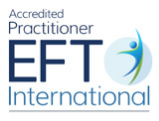Trauma is often associated with catastrophic events—violent assaults, natural disasters, or accidents—but it’s not always that simple. Many people experience trauma in more subtle, yet equally damaging ways. One of the most profound types of trauma occurs during childhood, a period when we are still forming our sense of self, our relationships with others, and our understanding of the world around us.
Developmental trauma refers to the psychological, emotional, and sometimes physiological injuries a child sustains during critical stages of growth. Unlike a one-time event or sudden trauma, developmental trauma is often chronic, occurring in environments where the child is exposed to ongoing instability, neglect, emotional abuse, or even conditional love. It can be caused by a parent’s inability to provide consistent emotional support, the absence of a safe home environment, or the distressing dynamics of family dysfunction, such as addiction, mental illness, or domestic violence.
From the moment we are born, our brains are wiring themselves in response to the world around us. When that world feels chaotic, unpredictable, or unsafe, it creates patterns that are often carried with us into adulthood, shaping the way we interact with ourselves and others. Everyone's experience with developmental trauma is unique, with its severity and impact varying across a spectrum—from mild disruptions to deeply entrenched patterns—shaping each person's emotional and relational life in different ways. However, there are some common patterns and behaviours that tend to surface in adulthood:
Difficulty Trusting Others
For many adults who experienced developmental trauma, trust is a major challenge. If caregivers were inconsistent or neglectful, the child may have learned that the world isn’t safe, and that people cannot be relied upon. As an adult, this lack of trust can show up in relationships, whether it’s romantic partners, friends, or colleagues. There may be a pervasive fear of betrayal, and a tendency to keep others at a distance, even when you deeply long for connection.
Emotional Dysregulation
Children who grow up in emotionally unstable environments may struggle to manage their emotions as adults. Emotional dysregulation—difficulty managing feelings like anger, sadness, or anxiety—can manifest as mood swings, outbursts, or numbness. People may struggle to identify what they’re feeling or may react disproportionately to everyday stressors, as their nervous system was trained to be on high alert from an early age.
Imposter Syndrome & Low Self-Worth
A common outcome of developmental trauma is an internalised belief that you are unworthy or unlovable. If a child’s emotional needs were neglected or dismissed, they may grow up to feel as though they don’t deserve love or success. As an adult, this can manifest as imposter syndrome—constantly feeling like a fraud, even when you are capable and successful—or as a tendency to self-sabotage, fearing that anything good in your life is just a fluke or will eventually be taken away.
Difficulty with Boundaries
Developmental trauma often leads to a confused sense of personal boundaries. Children in dysfunctional families may never learn what healthy boundaries look like, leading them to either over-extend themselves, become people-pleasers, or conversely, to shut others out. As an adult, this may result in feeling overwhelmed by other people’s needs or feeling emotionally drained and stuck in unhealthy relationships.
Chronic Anxiety or Hypervigilance
Living in a traumatic environment can make a person hypervigilant, constantly scanning for threats and danger, even when there is none. This is the brain’s way of staying "on alert," a response that was once protective in childhood. As an adult, this hypervigilance can show up as chronic anxiety, trouble relaxing, or an inability to fully trust that things are okay.
Attachment Issues
For children, early attachment to caregivers is crucial for emotional development. If that attachment is disrupted—whether through neglect, abuse, or inconsistency—it can lead to attachment issues in adulthood. You might find yourself getting too attached too quickly, or conversely, pushing people away out of fear of being hurt. Some people with attachment issues may struggle with intimacy or may form unhealthy, co-dependent relationships, repeating patterns from childhood that feel familiar, even though they are harmful.
Self-Sabotage and Addiction
Developmental trauma can often lead to the creation of coping mechanisms that help a person manage the pain they’ve experienced, but in the long run, these mechanisms may be destructive. Substance abuse, overeating, compulsive behaviors, or emotional withdrawal can all be ways of "numbing out" painful emotions. People with developmental trauma may find themselves stuck in cycles of self-sabotage, feeling that they are not worthy of happiness or success, or believing that they don’t know how to cope without these coping mechanisms.
Difficulty with Self-Compassion
Those who experience developmental trauma often struggle to show kindness to themselves. If a person grew up in an environment where love and validation were conditional or scarce, they may have internalised the message that they are not enough or that they need to constantly prove their worth. Self-criticism becomes a constant companion, and self-compassion feels foreign or even uncomfortable.
While the effects of developmental trauma can be profound, they are not permanent, and they don’t define who you are or what your future can look like. Healing from developmental trauma often involves processing past hurts, building the capacity to feel, nervous system regulation, learning to meet unmet needs and cultivating a sense of safety.
Healing takes time, patience, and often professional support, but it is entirely possible. If you recognise some of these patterns in your own life, know that you are not alone—and that there is hope for a future where you feel more whole, more at peace, and more connected to yourself and others. It’s never too late to start the journey of healing and reclaim the peace and joy you deserve!
Bibliography:
Bowlby, J. (1969). Attachment and Loss: Volume 1: Attachment. Hogarth Press.
Perry, B. D. (2006). The Neurosequential Model of Therapeutics. Reclaiming Children and Youth.
Levine, P. A. (2010). In an Unspoken Voice: How the Body Releases Trauma and Restores Goodness. North Atlantic Books.
van der Kolk, B. A. (2014). The Body Keeps the Score: Brain, Mind, and Body in the Healing of Trauma. Viking.
Siegel, D. J. (2012). The Developing Mind: How Relationships and the Brain Interact to Shape Who We Are. Guilford Press.











